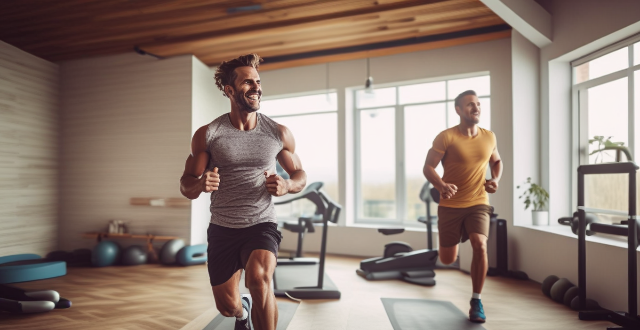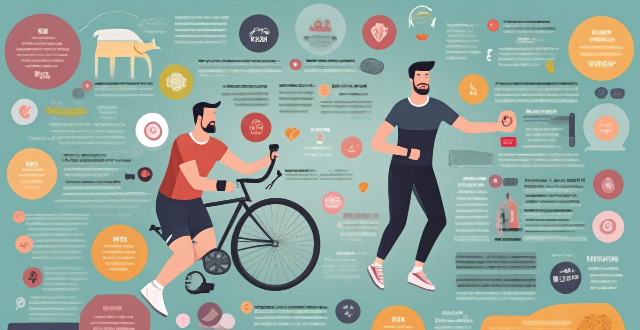Self Emotional

How can women develop their emotional intelligence in the workplace ?
Emotional intelligence (EQ) is a crucial skill for success in the workplace, especially for women who often face unique challenges and biases. Developing EQ can help women navigate complex social dynamics, build strong relationships, and lead effectively. Here's how they can enhance their emotional intelligence: Self-awareness involves understanding your own emotions and practicing self-reflection. Self-regulation means managing your emotions and staying calm under pressure. Motivation includes setting goals and finding sources of inspiration. Empathy involves listening actively and showing compassion. Social skills entail improving communication and building relationships. Continuous learning means seeking feedback and engaging in training. By focusing on these key areas, women can enhance their ability to navigate the workplace effectively. Remember that developing EQ is an ongoing process that requires practice, patience, and a commitment to personal growth.

In what ways do sports help with emotional regulation in children ?
Engaging in sports can significantly aid children in developing emotional regulation skills by promoting stress reduction, enhancing self-esteem, developing resilience, encouraging teamwork and social interaction, teaching discipline and self-control, providing an outlet for energy, and promoting mindfulness.

What role does self-awareness play in self-assessment techniques ?
Self-awareness is a crucial component of self-assessment techniques, helping individuals identify strengths and weaknesses, set realistic goals, enhance emotional intelligence, improve self-confidence, and foster personal growth.

How much exercise is needed to see emotional benefits ?
Engaging in regular physical activity is not only beneficial for your physical health but also for your emotional well-being. The question of how much exercise is needed to see emotional benefits is a common one, and the answer may vary depending on individual factors such as age, fitness level, and personal goals. However, there are some general guidelines that can help you determine the amount of exercise needed to experience emotional benefits. There are various types of exercise that you can incorporate into your routine, including aerobic exercise, strength training, flexibility exercises, and balance exercises. Regular exercise has been shown to have numerous emotional benefits, including reduced stress and anxiety, improved mood, better sleep, and increased self-esteem. According to the American Heart Association, the following guidelines are recommended for adults to achieve significant health benefits: - At least 150 minutes per week of moderate-intensity aerobic activity or 75 minutes per week of vigorous-intensity aerobic activity. - At least two days per week of strength training exercises involving all major muscle groups. - At least two to three days per week of flexibility exercises to maintain range of motion and prevent injury. - As needed, particularly for older adults or those with balance issues. It's important to note that individual needs may vary, and it's essential to listen to your body and adjust your exercise routine accordingly to ensure you're getting the most out of your workouts.

What is the significance of emotional intelligence in educational psychology ?
Emotional intelligence (EI) plays a pivotal role in educational psychology, impacting student success and well-being. Key aspects of EI include self-awareness, self-regulation, motivation, empathy, and social skills. For students, high EI correlates with better academic performance, social skill development, mental health, and resilience. For teachers, it enhances classroom management, instructional strategies, student relationships, and professional development. Schools benefit from a positive culture, effective intervention programs, and increased parental involvement when focusing on EI. Integrating EI into education fosters a generation equipped for academic, emotional, and social success.

Are there specific workout routines designed for emotional stability ?
Emotional stability is an important aspect of overall well-being, and exercise can play a significant role in achieving it. Cardiovascular exercises like running, cycling, swimming, and dancing increase heart rate and blood flow, reducing stress and anxiety levels while releasing endorphins that improve mood. Strength training such as weightlifting or resistance band exercises build muscle strength and endurance, improving self-esteem and confidence while reducing symptoms of anxiety and depression by promoting the growth of new brain cells and increasing neurotransmitter levels. Yoga and meditation practices focus on mindfulness, breathing techniques, and relaxation, reducing stress levels and improving cognitive function, memory, and attention span. Incorporating these activities into your fitness routine can have a positive impact on your emotional stability and overall well-being.

How do sports help in the emotional regulation of teenagers ?
Adolescence is a period of significant emotional, physical, and psychological changes. Sports can play a crucial role in helping teenagers regulate their emotions effectively by promoting physical health, developing social skills, building self-esteem and confidence, providing an outlet for emotions, and teaching discipline and responsibility. Encouraging teenagers to participate in sports is an investment in their overall wellbeing and future success.

How does exercise influence mood and emotional stability ?
Exercise has a positive impact on mood and emotional stability by releasing endorphins, reducing stress hormones, enhancing resilience, promoting mindfulness, and providing a sense of achievement. Incorporating regular exercise into your lifestyle can lead to better mental health and overall well-being.

Is there a difference in emotional management between casual and professional athletes ?
The text is a topic summary about emotional management in sports, focusing on the differences between casual and professional athletes. The article outlines key points related to self-awareness, self-regulation, and motivation for both groups. It notes that while both types of athletes must manage their emotions, professional athletes often have more structured approaches and greater motivation due to the high stakes involved in their careers. Casual athletes may benefit from adopting some of the emotional management strategies used by professionals but generally face fewer consequences if they fail to do so.

How can athletes maintain emotional balance during high-pressure competitions ?
Athletes can maintain emotional balance during high-pressure competitions by practicing mindfulness and meditation, visualization and imagery, goal setting and positive self-talk, physical preparation and recovery, social support, and seeking professional help when needed.

What is the relationship between self-efficacy and motivation in learning ?
This article explores the relationship between self-efficacy and motivation in learning. It explains how self-efficacy affects motivation, including choice of activities, level of effort and persistence, and emotional response to setbacks. The article also provides suggestions for enhancing self-efficacy to increase motivation, such as providing opportunities for mastery experiences, modeling successful performance, offering positive feedback and encouragement, and helping students set realistic goals.

Does exercise influence emotional regulation and mental well-being, which in turn affects cognitive processes ?
The article explores the relationship between exercise, emotional regulation, mental well-being, and cognitive processes. It suggests that regular physical activity can positively impact emotional regulation by reducing stress levels, improving self-esteem, and providing a healthy outlet for negative emotions. Exercise also contributes to improved mental well-being by alleviating symptoms of depression and anxiety, promoting relaxation, and providing opportunities for social interaction. These factors, in turn, influence cognitive processes such as attention, memory, problem solving, and decision making. Overall, the article concludes that incorporating exercise into daily routines can have numerous benefits for overall health and well-being.

In what ways do sports promote mental and emotional growth in individuals ?
The article discusses the role of sports in promoting mental and emotional growth. It mentions that participating in sports can improve self-esteem, confidence, social skills, resilience, perseverance, time management, organizational skills, and stress reduction techniques. The benefits of sports extend beyond the athletic field and contribute to overall personal development and success in various aspects of life.

Can sports be a tool for personal growth and self-discovery ?
Sports offer numerous opportunities for personal growth and self-discovery, including building resilience and determination, developing teamwork and communication skills, enhancing self-discipline, promoting emotional health, discovering passion and purpose, and cultivating mindfulness and focus.

Can exercise be a substitute for medication in treating some forms of emotional distress ?
This article explores the potential benefits of exercise in treating emotional distress, such as anxiety and depression, and discusses whether it can be a substitute for medication. While exercise has numerous benefits for mental health, including stress reduction and improved sleep quality, it may not be suitable for everyone or replace medication in all cases. Factors such as symptom severity and individual differences should be considered when determining the best approach to managing emotional distress. Exercise should be viewed as part of a comprehensive treatment plan that includes medical care, therapy, and lifestyle changes tailored to the individual's needs.

In what ways do sports promote self-discipline and self-control ?
Sports play a crucial role in promoting self-discipline and self-control by teaching goal setting, time management, perseverance, impulse control, delayed gratification, and stress management. These skills are essential for success in all areas of life, including personal and professional relationships, academics, and careers. By participating in sports, individuals develop valuable character traits that can lead to long-term success and well-being.

How does sports participation influence self-esteem in children ?
Sports participation has a positive impact on children's self-esteem by increasing physical fitness, developing skills and mastery, promoting social interaction and teamwork, and encouraging goal setting and achievement.

Is there a connection between physical fitness and self-esteem ?
The article discusses the relationship between physical fitness and self-esteem, stating that engaging in regular exercise and maintaining a fit body can improve one's body image, confidence, mental health, and social interaction. In contrast, poor physical fitness can lower self-esteem by negatively impacting body image, confidence, stress levels, and leading to isolation. The author concludes that maintaining good physical fitness is essential for overall well-being and self-esteem.

Can you suggest any tools or resources for conducting a self-assessment ?
Self-assessment is crucial for personal growth and professional development. Online tools like StrengthsFinder, MBTI, and DISC Assessment can help identify strengths, weaknesses, and areas for improvement. Books such as "StrengthsFinder 2.0" and "How to Win Friends & Influence People," along with articles from Harvard Business Review, offer valuable insights. Workshops like StrengthsExplorer and courses on personality types at Personality Hacker Academy or Skillshare can further enhance self-understanding.

How can women build their self-confidence in the workplace ?
The text provides a summary of how women can build self-confidence in the workplace through embracing achievements, setting realistic goals, developing new skills, practicing self-care, surrounding themselves with positive influences, speaking up and owning ideas, seeking mentorship, challenging themselves, celebrating uniqueness, and learning from failure.

What is the importance of emotional intelligence in sports leadership ?
Emotional intelligence is crucial for sports leadership, including empathy, communication skills, decision-making, conflict resolution, and motivation. Leaders with high EI can create a positive environment, make informed decisions, and inspire their team members to achieve success.

What is the relationship between exercise, sleep quality, and emotional well-being ?
The text explores the interconnectedness of exercise, sleep quality, and emotional well-being. It outlines how physical activity enhances mood through endorphin release and long-term health benefits. Sleep quality is crucial for emotional processing and resilience against stress. Mutual benefits exist between exercise and sleep, with each improving the other. A holistic approach to health includes attention to all three components for optimal well-being.

How can we promote self-care and self-love for women's mental health ?
Promoting self-care and self-love for women's mental health requires a comprehensive approach that includes creating awareness, providing resources, and establishing supportive environments. This involves understanding the importance of mental health, dispelling misconceptions, normalizing conversations, providing accessible information, offering therapeutic support, building community networks, implementing workplace initiatives, advocating for policies, encouraging mindfulness and meditation, promoting healthy lifestyle habits, and fostering self-reflection and growth. By adopting these strategies, we can empower women to take charge of their mental health and lead fulfilling lives.

What are the key self-assessment techniques for personal growth ?
Self-assessment techniques help identify strengths, weaknesses, and areas for improvement. Key methods include reflecting on past experiences, setting goals and tracking progress, seeking feedback from others, keeping a journal or diary, and practicing mindfulness and self-awareness. These techniques provide different perspectives and help individuals understand their personal growth over time.

How can counseling help women dealing with infertility-related stress ?
Counseling is crucial for women dealing with infertility-related stress. It helps identify emotional distress, address mental health concerns, build resilience and coping strategies, navigate medical treatment options, and foster hope and healing. By providing emotional support and promoting self-care practices, counseling empowers women to face the challenges of infertility with strength and courage.

How does exercise influence self-esteem ?
Exercise has a profound impact on self-esteem, positively influencing confidence, body image, and mental health. Physical benefits include weight management through fat reduction and muscle tone, as well as improved cardiovascular health and immune system function. Mental benefits include stress reduction through endorphin release and mindfulness, and enhanced cognitive function with improved memory and problem-solving abilities. Social benefits come from community building through group activities and support systems, as well as personal achievement through goal setting and feedback. Overall, regular physical activity can significantly enhance self-esteem by promoting physical, mental, and social well-being.

What is the importance of sleep in the development of teenagers ?
Sleep is crucial for teenagers' physical, mental, and emotional development. It aids growth, strengthens the immune system, and helps with weight management. Adequate sleep improves memory, cognitive function, and emotional regulation. It also reduces stress, enhances social interaction, and boosts self-esteem. Parents should encourage good sleep habits to support their teenagers' healthy development.

What are the benefits of group therapy for women with emotional disorders ?
Group therapy offers numerous benefits for women with emotional disorders, including increased social support, improved self-efficacy, and reduced symptoms of anxiety and depression. This form of treatment can be a powerful tool for promoting healing and personal growth.

Are there any particular self-defense techniques recommended for female travelers ?
Self-defense techniques are essential for female travelers to stay safe while exploring new places. Learning basic self-defense moves, taking a self-defense class, and practicing situational awareness can help reduce the risk of becoming a victim of crime during travels. It is crucial to trust your instincts and seek help if needed.